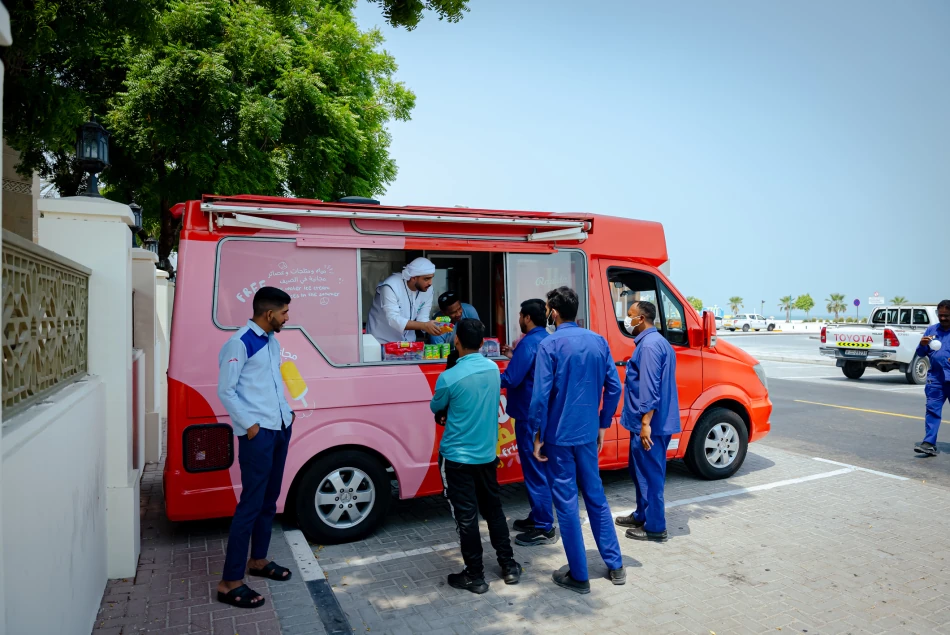
Safeguarding Workers from Heat Stress: A Cultural Shift in the UAE
UAE Launches Comprehensive Heat Protection Campaign for Workers as Gulf Nations Set New Standards for Labor Rights
The United Arab Emirates is rolling out an unprecedented series of humanitarian initiatives this summer to protect outdoor workers from heat stress, signaling a broader shift in Gulf labor practices that could influence regional standards. From air-conditioned rest stations to mobile cooling units distributing cold drinks, the UAE's multi-pronged approach demonstrates how oil-rich nations are adapting their labor policies to extreme climate conditions while potentially gaining competitive advantages in attracting global businesses concerned about worker welfare.
Government-Led Infrastructure: 10,000 Cooling Stations Across the Nation
The Ministry of Human Resources and Emiratisation has established over 10,000 air-conditioned rest stations equipped with comfort facilities specifically for delivery workers across all emirates. This infrastructure supports the annual "midday work ban" from June 15 to September 15, implemented in collaboration with government agencies and private sector partners.
This systematic approach represents a significant evolution from the Gulf's traditional labor practices. Unlike ad-hoc corporate social responsibility programs common elsewhere, the UAE is building permanent infrastructure that institutionalizes worker protection, potentially setting a benchmark that other Gulf Cooperation Council nations may need to match to remain competitive in attracting international investment and talent.
Community-Driven Initiatives Scale Rapidly
Dubai's "Neighborhood Fridge" Distributes One Million Items in One Month
The second edition of Dubai's "Freeej Fridge" campaign, backed by the Mohammed bin Rashid Al Maktoum Global Initiatives Foundation, distributed over one million bottles of water, juices, and ice products to workers in just one month since launching on June 23. The initiative uses refrigerated distribution vehicles that traverse Dubai's districts, delivering refreshments directly to construction sites, cleaning crews, delivery drivers, and agricultural workers.
The campaign's volunteer recruitment across diverse community segments suggests the UAE is successfully cultivating a culture of worker protection that extends beyond government mandates—a critical factor for sustainable policy implementation.
Abu Dhabi's Multi-Agency Approach
Abu Dhabi Police launched the "Cool Their Summer" initiative for construction workers in Al Ain city, partnering with First Abu Dhabi Bank to distribute water, sunglasses, and sun protection products. Simultaneously, the General Women's Union continues its "Water Charity/Fatima bint Mubarak" initiative throughout the three summer months, targeting thousands of workers across Abu Dhabi emirate with water, juices, dates, and protective shelters.
Economic and Strategic Implications
These initiatives arrive as Gulf nations face increasing scrutiny over labor conditions ahead of major international events and as they diversify their economies away from oil dependence. The UAE's proactive stance contrasts sharply with reactive approaches seen in other developing economies, where worker protection measures typically emerge only after international pressure or tragic incidents.
For international businesses, the UAE's systematic worker protection infrastructure reduces operational risks and potential reputational damage associated with supply chain labor practices. Companies can point to government-supported cooling stations and community initiatives when addressing stakeholder concerns about worker welfare in extreme heat conditions.
Regional Competition and Global Trends
The UAE's comprehensive approach positions it ahead of regional competitors in worker protection standards. While Saudi Arabia has introduced similar midday work bans, the UAE's combination of government infrastructure, private sector partnerships, and community engagement creates a more robust ecosystem.
This model could influence labor practices across the Gulf region, particularly as nations compete for international investment and seek to improve their global rankings on human development indices. The systematic nature of these initiatives suggests the UAE views worker protection not as a cost center, but as a competitive advantage in attracting multinational corporations increasingly focused on environmental, social, and governance criteria.
As climate change intensifies heat conditions across the Middle East and North Africa, the UAE's current investments in worker protection infrastructure may prove prescient, establishing systems that other nations will need to replicate as extreme weather events become more frequent and severe.
Most Viewed News

 Sara Khaled
Sara Khaled






